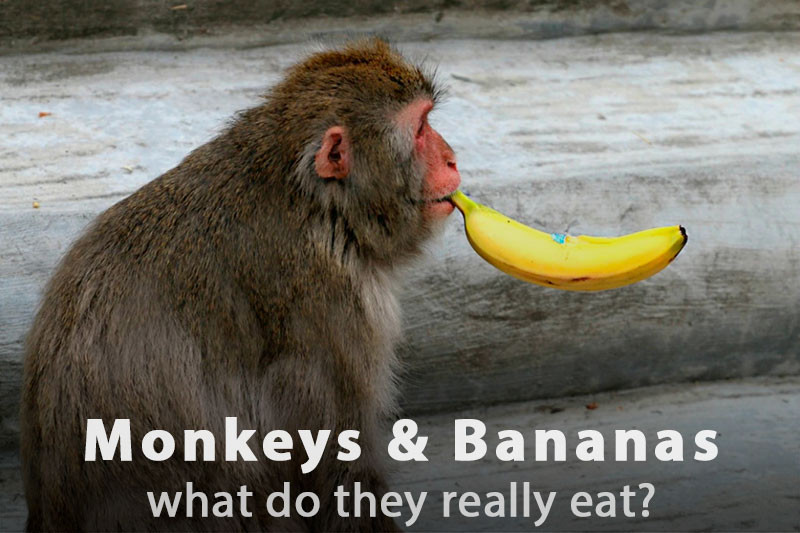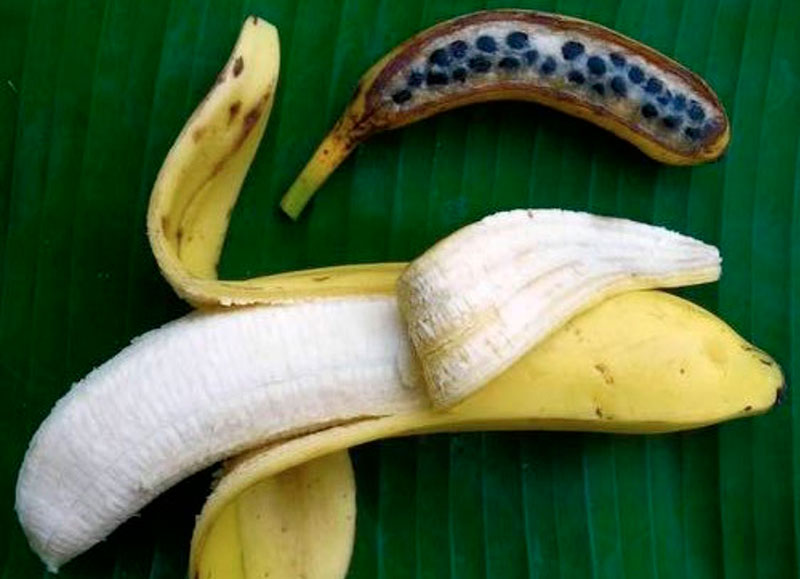Ask anyone now what is monkeys' favorite food, and most people will say without hesitation it is bananas. They will be surprised by the fact that monkeys do not actually eat these in the wild. Many zoos across the globe forbid visitors to feed monkeys with this yellow treat. Is it true that these tailed creatures are just not built for bananas? We must find it out!

Very seldom. They prefer plant leaves, nuts, or other more delicious fruits.
Oh, they definitely do, but only those cultivated by humans, whose taste has changed greatly.
They are way higher in sugar than wild ones, and excess calories lead to health problems.
In 1936, scientists studied monkeys in the wild to find out what products they liked to eat the most. They were given a broad band of fruits and vegetables to choose from. The experiment outcome was quite unexpected (at least for today's people). They ate first grapes, then apples, and finally bananas, followed by carrots, lettuce, nuts, and bread. This experiment alone proves that while a banana is on monkeys' favorite food list, it still doesn’t top it.
Why do most people primarily associate these smart animals with bananas? It's all about the kind of propaganda spread out by movies and cartoons. They tend to show monkeys running around with the yellow fruit in their hands. This stereotype migrated from one movie to another, resulting in an annoying myth.
Now let's figure out why monkeys love bananas but eat them rarely in the wild.
The thing is that these bananas we can find on any grocery store shelves are nowhere near those from growing in the wild. Firstly, they have 3-4 times more sugar than the wild ones. Secondly, wild bananas are full of hard seeds, making them difficult to eat and not that pulpy. So in their natural habitat, monkeys instinctively prefer eating insects and nuts, as well as leaves and flowers of diverse plants or some other fruits. Surely, wild bananas would be ok in bad times, but if any other attractive option occurs, monkeys will choose it over.
The only chance for monkeys to encounter yellow, soft, and sweet bananas in the wild is near plantations with selectively bred varieties. And yet, this would make up just a small part of their balanced and highly varied diet.
There are more and more signs across zoos around the world prohibiting giving bananas to monkeys. The uninitiated would probably wonder how it can be possible that monkeys are banned from eating bananas.
It’s primarily because of the high sugar level. As told before, domesticated fruits are several times higher in sugar than their wild cousins, making them more alluring to monkeys. And more harmful all the same. For example, they damage animals' teeth.
Moreover, visitors often go the extra mile and overfeed monkeys, sometimes out of fear that the zoo management cuts corners on monkeys' favorite treats. Thus, a wild monkey eats 1–2 bananas a week, while for the zoo one, it's about 3–5 a day! And this is given many kilometers jungle monkeys walk a day to find tasty and healthy food. Whereas in the zoo, they're in a cage all day long, doing nothing and stuffing their stomachs with sweets received from generous visitors. All this leads to obesity and diabetes in monkeys. Alas, animals are not able to keep to a strict diet.
That's why it's not easy to answer the question of whether it’s right to give bananas to monkeys. Yeah, one banana a week won't probably do any harm. But feeding this yellow sweet on a regular basis is like giving a child a cake, chocolates, and soda all together three times a day. It will certainly make them happy but also have a disastrous impact on their health. So keep it in mind and better bring an apple or some nuts next time you go to the zoo.
References: Links and sources